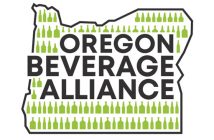Food trucks or so-called restaurant on wheels have exploded in popularity over the last few years. There are many reasons why people flock to food trucks. For one thing, they offer easily available and affordable food on the streets. When the Great Recession hit in 2008, food trucks became a less expensive alternative to brick-and-mortar restaurants.
Of course, just because food is served on a food truck doesn’t mean it doesn’t taste as good as food served at a restaurant. These days, there’s virtually an unlimited variety of food items available from food trucks. From sushi to barbecued short ribs and even gourmet lunch boxes, food trucks offer tasty, appetizing food for the casual diner that wants a quick meal.
On the business side, food truck owners enjoy much lower overhead costs. They also employ fewer staff and keep their labor costs low. They are also not as limited to their location since they can easily drive to a place that allows them to park. Indeed, opening a food truck can be one of your most profitable ventures. However, food trucks are not a silver bullet for business. You still need to keep in mind a few reminders to ensure you have a successful food truck business.
1. Get a good truck.
The truck is the heart and soul of your business. Without a good truck, you don’t have a good food truck business. It’s important to get a mechanically stable truck. If you have the budget to get a brand new truck, go for it. An old, clunky truck means you’ll need to get it off the road for repair soon. Getting it off the road means your business is closed and you’re not making money the entire time the truck is being serviced.
Also, look for a truck that can accommodate all your business needs. It must be big enough to include all the restaurants equipment you need, including the cooking equipment such as bakery ovens and restaurant grills as well as the cold storage equipment such as refrigerators and underbar coolers. Once you have a list of all the equipment you need, find out how much they weigh together and look for a truck that can accommodate all that weight.
2. Get your papers ready.
Despite the popularity of food trucks, you’ll find that some municipalities do not allow them to be parked in public space. Some areas may allow them but have special restrictions with regards to where they can park, what time they can operate, how many food trucks are allowed, and other issues. Always do your research before you lay your money down for costly equipment. While many localities do allow food trucks, most of them will need you to apply for special licenses and permits to operate.
3. Create a great menu.
There is no denying that great food is crucial to the success of your business. While a lot of brick-and-mortar restaurants thrive on novelties and unique offerings, food trucks become successful because they offer delicious, good food to people who want their meals done well but done quickly. Resist the temptation of adorning your food with bells and whistles. Food that takes up too much time and labor to prepare will eat up all your resources. Not to mention it will keep hungry people waiting in line on the streets for much longer. Let your food speak for itself by preparing simple but mouthwatering food.
4. Get the word out.
While it may be tempting to rely simply on word of mouth, the truth is you might not have enough momentum to get your business going if you’re just getting started. It helps to let people know that you’re opening a new food truck and you’ll be parking at a certain place for certain hours on certain days. With social media available for everybody, it isn’t so difficult anymore to market your up-and-coming food truck. It helps to hire professional marketing services who can help you create and execute an effective marketing strategy for your food truck business.




